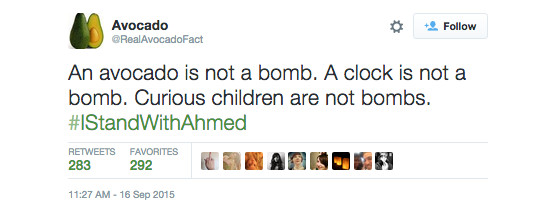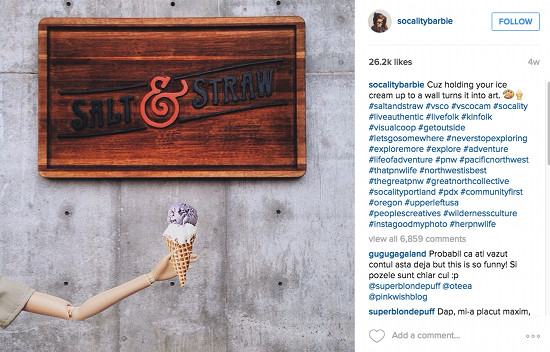
Why ‘Fake Social’ Has Real Implications for Your Brand

What does it mean to be “Internet-y?” Big Spaceship is conducting a series of pieces that explore internet subcultures and micro-trends, explaining their underlying meanings for both brands as well as our culture at large.
From avocados to Donald Trump, parody accounts have been cultivating micro-communities across the social media landscape since the early years of Twitter, bringing people together around shared interests and points of view. While the art of parody has existed in many forms throughout history (from James Gillray to Weird Al Yankovic), social platforms have been an important catalyst for mocking pop culture by lowering the barrier of entry. Anyone has the means to create an account and use imitation and humour to broadcast their opinions to millions online.
HOW PARODY ACCOUNTS ARE DRIVING VOICES IN INTERNET CULTURE
The range of parody accounts is vast, from prominent figures to companies, stereotypes, fads, objects, fiction and nonfiction. There’s @Jesus who’s been sharing words of wisdom since 2009 and @BoredElonMusk weighing in on the tech industry and inventions. Accounts like @ProBirdRights and @media__steph have been spun out from social media and industry stereotypes. And more recently, parodies of politicians (Putinspiration) and candidates (@yaboyberniesand) have taken centre stage leading up to the election. Many accounts have amassed substantial followings, such as @lord_voldemort7 with 2.12 million+ Twitter followers and @Socalitybarbie with 1.2 million+ fans on Instagram.


These accounts stay relevant by commenting on viral Internet and timely moments. But they arguably drive the most cultural impact when they share a strong point of view around larger issues. Examples being gay marriage in Ireland, #IStandWithAhmed, and U.S. immigration policies.
One of the biggest ways these accounts influence culture is by driving the attention of their large followings toward serious issues to prompt discussion and action. Their anonymity lends them the freedom to weigh in on issues subjectively, without fear of reproach, while from the audience perspective, people tend to be more willing to engage with an account that’s framed as a joke, as opposed to an actual person.

WHY BRANDS SHOULD PAY ATTENTION TO PARODY ACCOUNTS
1. Glean audience insights. In order to do so, brands must monitor conversations from parody accounts related to themselves, especially ones that are attracting large followings, to understand both the pain and passion points. These candid insights are important for informing brand messaging and creative.
2. The appropriation of celebrity. Though we’ve seen Twitter suspend parody accounts for breaking guidelines, according to Twitter’s policies, users just have to label themselves as a parody in order to be able to tweet freely. So while there are certain situations when it’s necessary for brands to report these accounts, i.e., if they’re not labeled as fake and are spewing false, misleading information, in most cases it’s better to let them be and potentially even engage with them. As Arby’s response to The Daily Show’s continuous jabs has proved, when brands are able to embrace parody, it shows their ability to roll with the punches — a necessary skill in the ever-fluctuating social space.
3. Parodies entering brands’ influencer strategy. Some account’s owners are reportedly charging $500-$1000 per sponsored post. Whether or not this trend grows is up in the air, given the potential legal troubles around making profits from another brand’s likeness. However, for brands with the right voice, parody accounts that have more substance (e.g, @SocialityBarbie) can be effective content partners, allowing the brand to participate in the humour and reach a new audience.

4. The future of dark social. The scale of parody accounts indicates the appeal of anonymity on social, which is what Gen Z favours. Apps like Whisper and Secret provide a ‘dark network’ for teens, where they can openly express their opinions. For brands, dark social also presents a rich research opportunity. On public platforms like Instagram, people tend to show a filtered and edited version of themselves. But on dark social, there’s more freedom to show the imperfect, unspoken side of things. This is where brands can discover untapped insights that allows them to connect with their audience in authentic ways.
Jennifer Kung is Senior Social Strategist at Big Spaceship










